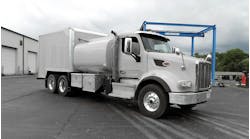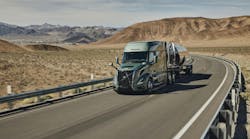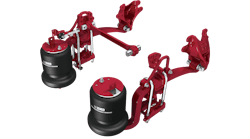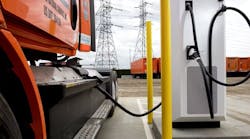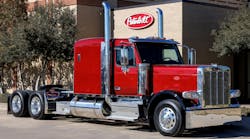Results from Transport Capital Partners’ (TCP) First Quarter 2013 Business Expectations Survey show mixed feedback from carriers on the fuel economy and maintenance costs of 2010 engines versus 2007 engines. Over half of the carriers indicate that fuel economy has improved with new engines, but almost 40% report that there has been no change.
The discrepancy is even more pronounced between large carriers (greater than $25 million in revenue) and small carriers. Fifty-seven percent of larger carriers report fuel economy improvement compared to only 32% of smaller carriers.
“Carriers differ in their measurement systems and tracking procedures, but the real story here is that very few carriers have seen a decline in fuel economy with the 2010 engines, says Steven Dutro, TCP partner. “Most of the carriers we talk to have reported overall improvement in MPG in recent years from a combination of technology and training efforts.”
There are also mixed results on maintenance costs. Fifty-three percent of carriers say that there has been no change in engine-related maintenance costs, yet 40% indicate that costs have increased. Larger carriers are evenly split as to whether the 2010 engines cost more to maintain than the 2007 engines (47% versus 48%). Almost two-thirds of smaller carriers indicate no change in maintenance costs, while nearly 30% say maintenance costs have increased.
It may be that some carriers are viewing maintenance costs overall rather than by miles generated over the same early portion of the truck life cycle. For instance, older trucks have higher costs than newer trucks.
“The differences in these responses may simply represent differences in measurement and tracking,” says Richard Mikes, TCP partner. “Significantly, very few carriers report lower maintenance costs for the 2010 engines, and the majority of carriers we know say these costs have increased.”
Carriers have adopted other changes as well at the same time they began buying the new engines. The other factors include reducing road speeds and adding trailer skirts and other aerodynamics. As a result, isolating pure engine effects maybe difficult.
